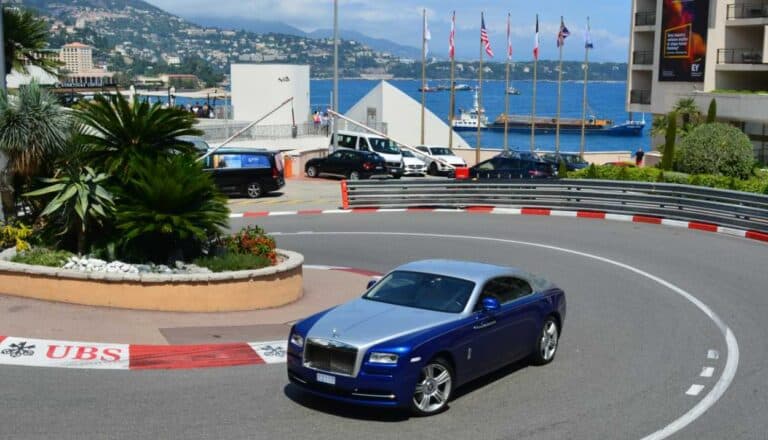It is often said that Monaco is a place where people pay no taxes at all, and that the Principality remains a sheltered tax haven in the middle of Europe. However, none of this is entirely accurate.
Indeed, Monaco has historically been regarded as a notorious tax haven, but today it no longer appears on international blacklists, and there are certain taxes that apply within its territory.
NEW REPORT
The report “The definitive guide to living in Monaco” is now available, with detailed information on Monaco’s tax framework, residence and society.
Click here to download it for free.
What is a tax haven?
To clarify the concept, it is important to understand that the term “tax haven” does not necessarily refer to countries with low or zero taxes. The modern definition, adopted by key organizations such as the OECD and the EU, focuses on transparency and information exchange in tax matters.
A true tax haven is characterized by very strict banking secrecy, refusal to share financial information with other countries, and a lack of double taxation agreements with information exchange clauses. In the past, Monaco indeed fit into such criteria by not automatically reporting taxpayer information and maintaining robust banking secrecy.
However, just as a judge’s verdict is what condemns or acquits an individual, a jurisdiction can only be deemed a tax haven if recognized as such by significant supranational organizations or major economies. For example, the EU or the OECD might label a country as “non-cooperative” and place it on a blacklist. In Monaco’s case, it underwent significant reforms to exit these lists over the last two decades.
Most notably, the Principality adhered to commitments on financial transparency and has entered into bilateral and multilateral agreements that ensure an effective exchange of tax information “on request.” In 2009, the OECD removed Monaco from its list of non-cooperative tax havens, and since then, the Principality has maintained measures in line with broader international standards.
Why Monaco is no longer considered a tax haven
Major international organizations like the OECD and the EU recognize Monaco’s progress toward tax transparency and compliance with information-sharing initiatives. The Principality’s commitment is evident through:
- Transparency obligations: Monaco has put in place legal instruments to share information with other countries when requested.
- Signing of key agreements: It has concluded tax information exchange arrangements and double tax treaties with various partners.
- Adherence to CRS: Monaco participates in the OECD’s Common Reporting Standard, which automates the exchange of financial account data.
Furthermore, Monaco is no longer on the EU’s or the OECD’s blacklist of tax havens. It is true that some NGOs or certain countries still claim Monaco is a tax haven, primarily due to outdated perceptions of banking secrecy. However, when it comes to official lists from the most reputable global bodies, Monaco is not deemed a non-cooperative jurisdiction.
In June 2024, the Financial Action Task Force (FATF) placed Monaco on its “grey list” for potential money laundering and terrorist financing risks. Despite this increased monitoring, the Principality is already enacting reforms aimed at fully resolving the FATF’s concerns by early 2026. This classification does not equate to being labeled a “tax haven,” and Monaco continues to meet global standards for tax cooperation.
Taxes that do exist in Monaco
Monaco’s reputation as a tax-friendly jurisdiction stems from the absence of many taxes you find in other countries:
- No personal income tax: Except for French nationals (due to a special agreement), Monaco does not levy income tax on individuals.
- No wealth tax: Residents can hold substantial assets without a wealth tax.
- No capital gains tax: Individuals in Monaco are generally not taxed on their capital gains.
- No property tax: Monaco does not impose an annual property tax on real estate.
- No gift tax or inheritance tax for close relatives: If the recipients are spouses or direct descendants, the Principality does not tax inheritances or gifts. It does, however, apply an inheritance tax if the beneficiary is outside these close family categories.
That said, it is not entirely free of taxation. Here is an overview of those that do exist.
Corporate tax
Monaco does have a Corporate Income Tax (CIT). The standard CIT rate is 25%, but the key condition is that a company should generate over 25% of its turnover outside Monaco. Companies strictly operating within the Principality and serving local clients exclusively are generally not subject to corporate tax.
Moreover, new companies enjoy specific exemptions for the first two years, with the tax gradually applying thereafter.
VAT
Monaco is part of the French VAT system. Businesses in Monaco must collect and remit VAT in the same manner as French businesses, at rates that align with France’s VAT regime. Consequently, residents in Monaco pay VAT on goods and services just like in other European countries.
Leasehold tax
While there is no property tax, Monaco does have a leasehold tax or “leasehold duty,” set at 1% of the total rent plus estimated service charges for the entire rental period. This levy is paid upon registering tenancy agreements. Failure to register timely can result in penalties, so it is important for both tenants and landlords to address it promptly.
Inheritance tax
Monaco does not levy inheritance or gift taxes between spouses and direct descendants. However, if assets pass to other relatives or unrelated beneficiaries, a corresponding tax applies. The rate depends on the degree of relationship, being higher for beneficiaries unrelated to the deceased.
Although personal income tax is absent and dividends in Monaco are not taxed locally, dividends received from abroad could face a source tax if there is no double taxation treaty (DTA) in place. For instance, dividends from the United States might be taxed at source, since Monaco and the U.S. do not have a DTA that reduces or eliminates withholding on dividends.
NEW REPORT
The report “The definitive guide to living in Monaco” is now available, with detailed information on Monaco’s tax framework, residence and society.
Click here to download it for free.
How to be a Monaco tax resident
Becoming a Monaco resident requires two steps: first, obtaining administrative residency, and later, securing full tax residency status.
To achieve the administrative residence (“Carte de Séjour”) applicants typically need to prove sufficient financial means. One common route is to open a Monegasque bank account and deposit a significant amount (often around “500,000 euros”). The bank then issues a letter confirming the applicant’s financial standing. Other methods to demonstrate financial sufficiency include showing local employment, running a business in Monaco, or being supported by a financially stable family member who is already a resident.
Furthermore, you must have suitable accommodation in Monaco (either owned or rented) and a clean criminal record. Upon fulfilling these conditions, the authorities issue a Carte de Séjour in one of three types:
- 1-year permit: renewable up to 3 years total
- 3-year permit: renewable up to 9 years total
- 10-year permit: renewable indefinitely after several years of continuous residency
Tax residence certificate
Even after obtaining the Carte de Séjour, you may still need to apply separately for a tax residence certificate to confirm you are recognized as a tax resident in Monaco. Usually, local authorities require proof of actual residency, a declaration of intent to reside primarily in Monaco, and documentation showing no greater ties to another jurisdiction.
Having strong economic and personal links—like children attending local schools or extensive business involvement—can help solidify your tax residency status.
Contact us for assistance
If you are considering relocating to Monaco and taking advantage of these benefits, please feel free to contact us through the contact form or by writing to [email protected].
We have years of expertise assisting entrepreneurs, high-net-worth individuals, and other professionals with the residency process, ensuring a smooth transition and proper tax planning strategies.
Sources
- https://monservicepublic.gouv.mc/en/themes/tax/information/general-information/tax-in-monaco
- https://monentreprise.gouv.mc/en/themes/accounting-obligations-and-tax/tax/other-taxes-and-duties/corporate-income-tax
- https://en.gouv.mc/Government-Institutions/The-Government/Ministry-of-Finance-and-Economy/Department-of-Tax-Services
- https://monservicepublic.gouv.mc/en/themes/nationality-and-residency/residency/residents/the-residence-permit
- https://www.bbc.com/news/world-europe-17615784



 All communications are encrypted and will be treated with absolute confidentiality. Your data will never be shared with third parties.
All communications are encrypted and will be treated with absolute confidentiality. Your data will never be shared with third parties. 




